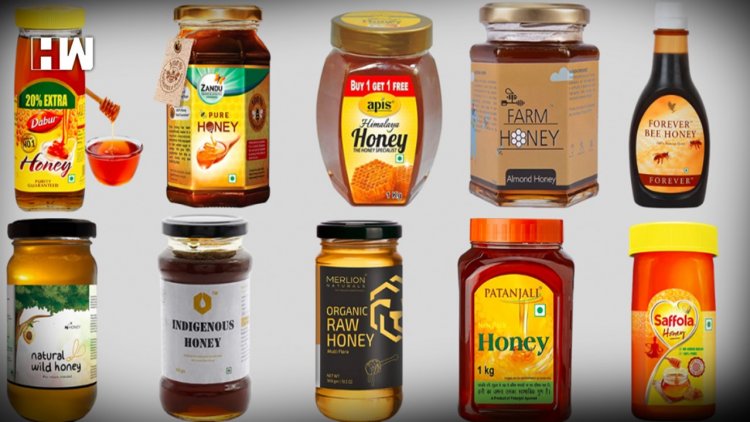Only 3 Out Of 13 Honey Brands Pass the NMR Test

In a case of adulteration of packaged honey sold in the Indian market, 10 of the 13 brands failed the stringent Nuclear Magnetic Resonance (NMR) test considered as the global gold standard for honey as part of an investigation conducted by a Delhi-based NGO Centre for Science and Environment (CSE).
The brands whose samples flunked the test include household names like Dabur, yoga guru Ramdev Baba's Patanjali, Zandu, Baidyanath, Apis Himalaya and Hitkari. Three brands - Saffola, Markfed Sohna and Nature's Nectar passed the test.
Meanwhile, Dabur has countered the findings of the test saying its honey has passed NMR tests as well. A detailed response is awaited. Emami Spokesperson too said that its Zandu Pure Honey conforms and adheres to all the protocols and quality norms/standards laid down by the Government of India and its authorised entities such as FSSAI. It did not make any comment on the NMR test, which is the global standard. Apis spokesperson replied that they will not comment immediately but will plan a press conference, date of which is yet to be announced.
In all, 22 samples were tested of which only five passed. CSE said 77 per cent of the samples were found to be adulterated with addition of sugar syrup. It added that most of it is being imported from China. Sugar syrup costs just Rs 60 per kg, about half the price of raw honey at Rs 120 per kg which makes adulteration lucrative.
"It is a food fraud more nefarious and sophisticated than what we found in our 2003 and 2006 investigations into soft drinks; more damaging to our health than perhaps anything that we have found till now - keeping in mind the fact that we are still fighting against a killer COVID-19 pandemic with our backs to the wall. This overuse of sugar in our diet will make it worse," said Centre for Science and Environment (CSE) director general Sunita Narain.
"This is immensely worrying, as it will further compromise health in the troubled times of COVID-19. We know that households today are consuming more honey because of its intrinsic goodness - antimicrobial and anti-inflammatory properties. Our research has found that most of the honey sold in the market is adulterated with sugar syrup. Therefore, instead of honey, people are eating more sugar, which will add to the risk of COVID-19. Sugar ingestion is directly linked to obesity, and obese people are more vulnerable to life-threatening infections," she added.
CSE got a tip-off on something sinister happening in the honey industry from tales of woes from beekeepers in the country. At a time when consumption of honey, which is an immunity booster that helps in fighting Covid19, is rising, beekeepers are reporting low price yields in the market. The investigation led to the revelation that cheaper sugar syrup is being imported from China and mixed up to 50 per cent in raw honey. The adulterated honey passes the required health and safety protocols and tests certified by FSSAI, which CSE claims are lax in comparison to global standards.
"What we found was shocking," says Amit Khurana, programme director of CSE's Food Safety and Toxins team. "It shows how the business of adulteration has evolved so that it can pass the stipulated tests in India. Our concern is not just that the honey we eat is adulterated, but that this adulteration is difficult to catch. In fact, we have found that the sugar syrups are designed so that they can go undetected."
In August, the Indian government had made NMR tests mandatory for export of honey indicating it was aware of contamination but is yet to make the tests mandatory for the domestic market.















































